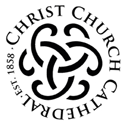The Society of Ordained Scientists
~Fr. Michael
This past month, I was admitted into a group which is at the vanguard of one of the most important conversations in the world: the Society of Ordained Scientists. The group was founded in the early 1970s in the UK by Professor Arthur Peacocke, a luminary in the nascent field. This group is an international assembly of clergy with advanced degrees in the sciences, and with a robust history of publications addressing the issues raised by the imposition of the false dichotomy between Science and Theology by our modern culture. I was beyond honored to join the ranks of John Polkinghorne (my external dissertation examiner), David Wilkinson (the President of my college and my Advisor), John Templeton, Robert Russell, and Alister McGrath, and countless others besides, as a newbie and a hanger-on. If those names are meaningless to you, I suggest at least a simple Google search if not a more in-depth exploration of the fantastic literature and program that they have produced.
I call the conversation between Science and Theology ‘most important’ because it is clear that the common view in the world around us, fueled by ignorance and lack of education, is that these two world-views are disparate and opposed to one another. There have been quite a few popular writings in recent years which suggest that religion is passé and irrelevant in the face of science. The work of Richard Dawkins suggests that religion is just a behavioral vestige of superstitious tribalism, practiced only by those who lack the mental capacity to form rational ideas. The same author advocates eugenics, and termination of down syndrome babies and others with congenital birth defects as ‘scientifically ethical’; he proposes that strategic ‘wars of elimination’ should be waged to eliminate the populace which hold ‘superstitious beliefs’ in order to ‘liberate free thinkers’. That line of conversation is dominating the public field—Dawkins’ spurious books have outsold the aforementioned authors by three times—and is rabidly opposed to the system of ethics proposed by the Gospel. You can begin to see, I hope, why I regard this as among the most important conversations in the world—this is not just an idle conversation, but rather policies, and ultimately, lives, hang in the balance. The ideas of Gospel ethics deserve not just my time and attention, but yours as well.
The three-day biannual retreat that I attended at the start of January is the continued effort to establish a new province of this society in North America, primarily an effort to make the Society and its meetings more accessible to supportive clergy and congregations. It was a genuinely spiritual retreat, with reflections and conversation facilitated by the Bishop of Rhode Island, himself a physicist and teacher. We gathered in regular prayer and conversation about all available issues, from genetics to cosmology, and encouraged one another in our common ministry. I have to say, it was one of the most refreshing retreats I have ever attended, I was challenged by the level of thought that was presented, just as I was encouraged by the level of witness.
Perhaps most important of all, I was connected anew to a network of fantastically talented colleagues, each of which is working, in his or her own neighborhood, to use the light of science to shed light on the work of the Church, and also, using the vast storehouse of ecclesiastical resources to inform our scientific endeavors.
There was a moment at the close of the middle day of the retreat, when I publicly made apology for ‘geeking out’ and talking about the relationship of the relationship of an extremely esoteric field of mathematics (the Lie geometries of the Platonic Solids, if you’re interested) to theology. Bishop Knisely cut me off, mid-apology, to say, “What on earth are you apologizing for, Michael? We’re your people!” I must say, it felt good.

